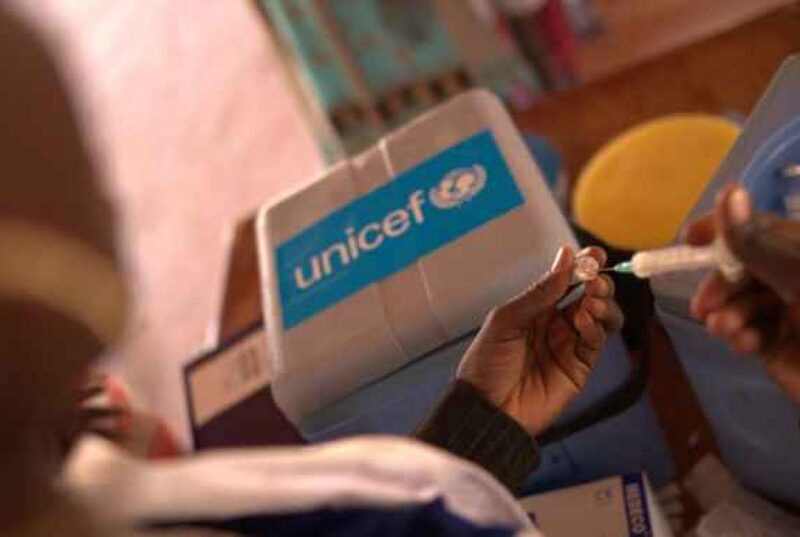
Opening concert of Annual Meeting 2025 in Davos-Klosters to address glacier melt in Antractica
The opening concert of the Annual Meeting 2025 in Davos-Klosters will address the pressing issues ...

The Bill & Melinda Gates Foundation, the Swedish International Development Cooperation Agency (Sida), and UNICEF today announced a $150 million financial guarantee to help UNICEF procure vaccines and other health-related supplies for low- and middle-income countries (LMICs).
This financing, effective through 2025, will help sustain national immunization programs, including COVID-19 vaccination campaigns, and enable the timely procurement of essential health supplies while domestic financing is mobilized.
Many low- and middle-income countries rely on UNICEF’s procurement services to secure access to a wide array of affordable essential health supplies as part of their emergency response and to meet routine needs. With the COVID-19 pandemic putting decades of work to improve child survival in jeopardy, this new financing will help improve the sustainable and reliable availability of essential and often lifesaving health supplies, such as diagnostics, syringes, and oxygen concentrators.
“The world cannot have a system in which supplies that are critical to improving the health of all people are auctioned to the highest bidder, forcing poorer countries to go without,” said Chris Elias, president of the Global Development Division at the Bill & Melinda Gates Foundation. “Access to diagnostics, treatments, vaccines and other essential health supplies is critical to ensuring that countries can protect their people against COVID-19 and other health threats. This financial commitment will ensure that UNICEF is well-equipped to continue procuring affordable, lifesaving tools for those most in need.”
“We at Sida are thrilled that we can deploy innovative financing mechanisms together with the Bill & Melinda Gates Foundation to allow UNICEF to scale up their operations,” said Cecilia Scharp, director of International Organisations and Policy Support at Sida. “Health systems in low- and middle-income countries are disproportionally affected by the COVID-19 pandemic, and access to health commodities is of vital importance to combat impacts of the pandemic.”
Since 2017, UNICEF has accelerated the procurement and delivery of $900 million worth of supplies, including 840 million doses of vaccines to more than 100 countries, by leveraging financial guarantees. UNICEF substantially expanded its financing capacity in 2020 to support the procurement of COVID-19 products and other essential supplies. Additionally, UNICEF has secured ultra-cold chain storage, syringes, diagnostics, oxygen concentrators, and other critical commodities, typically accelerating delivery by up to five months. At a time when health systems are under incredible strain from COVID-19, this support is critical to protect and reinforce essential elements of the system to ensure all children can still access vaccines and other lifesaving health interventions.
“COVID-19 has shown us – without a doubt – that inequality of access to health services and vital health supplies like vaccines is not only bad for those left behind – but bad for everybody,” said Etleva Kadilli, Director of UNICEF’s Supply Division. “Even with the continuing pressures of the pandemic, it is imperative that essential health supplies continue and are scaled up to reach communities who have been missing out. Financial guarantees and domestic resources committed now will help drive more equitable access to critical COVID-19 tools to control the pandemic, while also ensuring all children have access to vaccines and other lifesaving supplies when they need them.”
The Bill & Melinda Gates Foundation’s financing is made available through its $2.5 billion Strategic Investment Fund (SIF), which uses a suite of financial tools to address market failures. SIF issued its first $15 million guarantee to UNICEF in 2015 to prevent vaccine stockouts in Nigeria, then extended this commitment in 2017 to allow UNICEF to leverage the financing for procurement for other LMICs. SIF increased its guarantee to $65 million in 2020 in response to the COVID-19 pandemic, with the current commitment set to expire at the end of 2021. Since the start of the pandemic, SIF has leveraged more than $800 million in volume guarantees, forgivable loans, and other at-risk financing to enable the rapid procurement of essential medical supplies and help companies finance the production of COVID-19 products for low- and middle-income countries.
The opening concert of the Annual Meeting 2025 in Davos-Klosters will address the pressing issues ...
Juhayna Food Industries proudly announced that its agricultural arm, El Enmaa for Agricultural Development, has ...
The United Nations Environment Program (UNEP) and several partners launched a pilot project to build ...


اترك تعليقا